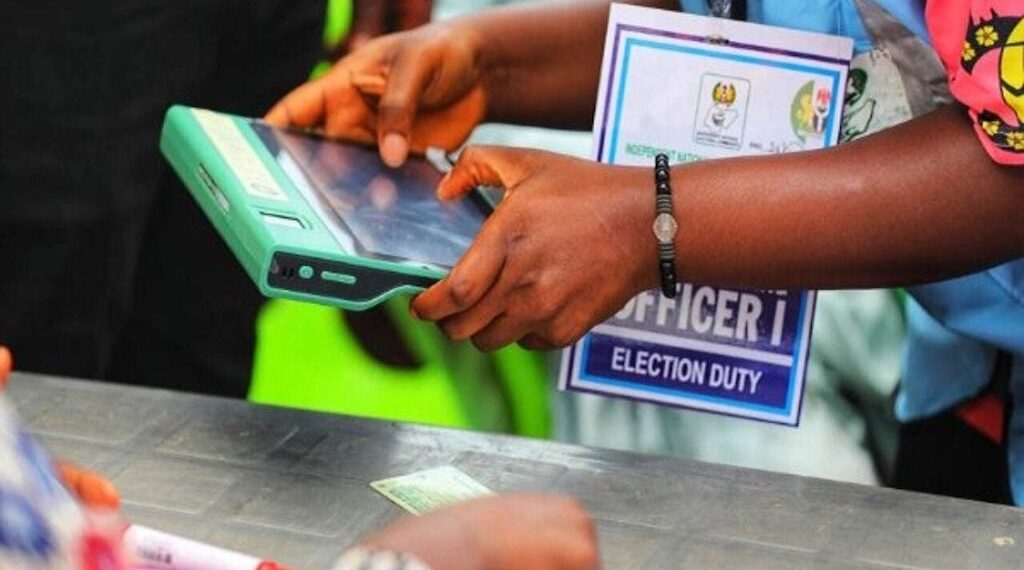News
2023 Election: Everything you need to know about BVAS

By Balogun Kamilu Lekan
An electronic gadget called the Bimodal Voter Accreditation System (BVAS) will be used for the 2023 election, and it has been generating some reactions about its reliability and credibility.
INEC introduced the BVAS to eradicate all sorts of electoral misconduct; political analysts believe it will drastically alter Nigeria’s electoral process.
The device was first deployed for the Isoko South Constituency 1 bye-election in Delta State in 2021.
What is BVAS?
The Independent National Electoral Commission introduced the Bimodal Voter Accreditation System (BVAS) in 2021.
The BVAS is a biometric technology created to validate Permanent Voter Cards (PVCs) and enable human recognition by reading fingerprints and facial recognition.
The BVAS may also take pictures of the Form EC8A polling unit result sheet and submit them to the INEC platform for viewing election results (IReV).
The IReV is an internet platform where polling unit results are uploaded, transferred, and made publicly available.
To obtain polling unit results uploaded to the platform as PDF files, users of the portal can also create personal accounts.
How does the BVAS work?
The BVAS work by verifying and authenticating voters by scanning the barcode or QR code on the PVC or voter’s register. It can also detect a voter’s information by using the last six digits of the voter’s identification number and last name. BVAS crucially checks voter authentication and voter card authenticity during accreditation.
BVAS also serves as the INEC Voter Enrolment Device (IVED) during voter registration. Its use has also done away with incident forms being used during accreditation.
Is the BVAS infallible?
According to INEC, the BVAS cannot be manipulated.
The INEC chairman noted in a statement that uploading polling units results cannot be manipulated as any result sent via the BVAS cannot be recalled.
“With the nature of BVAS, the uploaded polling units (PUs) results cannot be manipulated. The machine was not designed to edit the photographic results uploaded and sent to the INEC Result Viewing Portal (IReV), and once sent, cannot be recalled,” he noted.
However, the credibility of the BVAS has been questioned recently when it was deployed.
In the first trial of the BVAS during the Isoko South Constituency 1 bye-election in Delta State in 2021, there were complaints that the device couldn’t capture thumbs prints and facial recognition of some people, especially the aged.
In another instance, the device was faulted when it was deployed for the governorship election in Anambra state in November 2021 for its failure to capture voters.
Reason why the BVAS might malfunction
In the capacity of the INEC, it has been noted that the device needs regular software updates and adequate broadband access to ensure its optimal functionality
Quality internet access is a major challenge as several areas (especially remote locations) within the country don’t have 4G network coverage.
Disclaimer
The information in this article was curated from online sources. NewsWireNGR or its editorial team cannot independently verify all details.
Follow us on Instagram and Facebook for Live and Entertaining Updates.
Always visit NewsWireNGR for the latest Naija news and updated Naija breaking news.
NewsWireNGRLatest News in Nigeria
Send Us A Press Statement/News Tips on 9ja Happenings: [email protected].
Advertise With Us: [email protected]
LISTEN to NewsWireNGR PODCASTS












